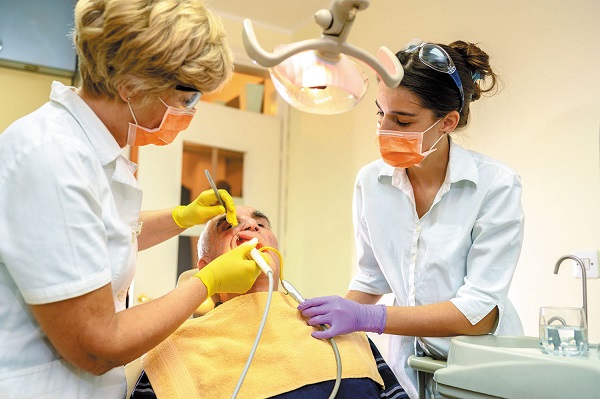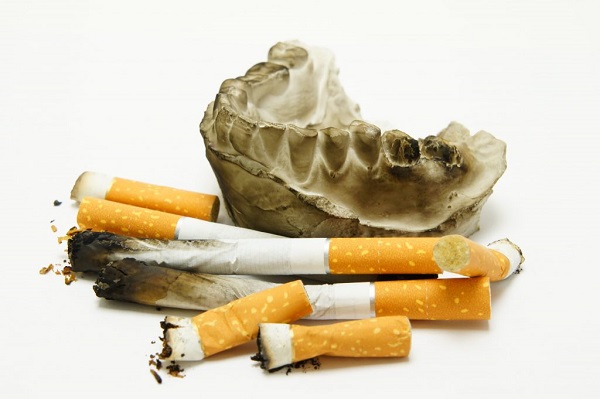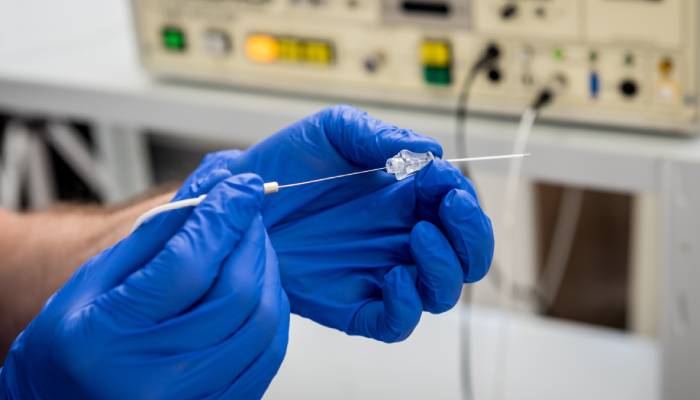Know The Role Of Oral Health In Combating Viral Infections

Understanding The Role Of Neurosurgeons In Chennai
May 21, 2020
How VoIP Can Minimize Hospital Communication Costs?
December 25, 2021Strong teeth and good oral health encourages you to talk and laugh more confidently. Your mouth has practical uses like eating, chewing, expressing various emotions and plays a pivotal role in creating a healthy and quality life. A bright and beautiful smile positively affects your self-esteem. Oral health directly correlates to the overall wellbeing of your body.
The Significance Of Mouth
The mouth acts as a doorway to the body and an access point for harmful infection to enter your bloodstream. The virus that causes COVID-19 and the flu can enter your body through the mouth. Research indicates that the virus stays in our oral cavity and throat for four days before entering the airway passage and lungs. Practising good oral hygiene is essential for reducing the virus’s ability to multiply and prevent the infection from spreading. The best dentist in Medavakkam can keep you and your family secure by controlling your oral risk factors. Maintaining good oral health and regularly visiting your dentist will prevent the virus from entering your body.

How Can Your Dentist Catch Early Symptoms?
As the starting point of your body’s digestive and respiratory tracts, your mouth can show signs of nutritional insufficiencies and prevailing infection. More than 90% of all diseases have oral symptoms, like swollen gums, dry mouth, and bad breath. Serious, chronic conditions like leukaemia, diabetes, and heart disease can affect your teeth and gums. In some cases, bad breath and bleeding gums can be an indication of diabetes. Your regular dental X-rays can reveal early signs of bone deterioration. A tense and painful jaw may be a sign that you have a heart attack. Your dentist can catch these symptoms during your regular dental care visit. Since many patients have routine oral exams and see a dentist more often than their physician, a dentist may be the first health care provider to identify a health condition in its early stages. Regularly seeing your dentist can help detect these diseases soon and enable you to start treatment promptly.
Some Medical Conditions Your Dentist Can Detect
Leftover food particles in your mouth can foster harmful bacteria’s growth when you do not follow proper oral hygiene. These bacteria can infect your gums and cause inflammation. Your internal immune system identifies these pathogens and works towards defending the body. The inflammation in your mouth can also lead to other disorders in your body. It impairs your body’s ability to control blood sugar levels. A periodontal disease complicates diabetes by reducing your body’s insulin absorption, a hormone that processes sugar into energy. Unfortunately, gum infections thrive in high blood sugar environments, and you should control diabetes to treat it. Several common risk factors, such as smoking, unhealthy diet, and being overweight, increase the likelihood of gum infection and heart disease. When the inflammation enters the blood vessels, it raises the chances of blocking them and might lead to a heart attack. Though doctors cannot establish a link between periodontitis and osteoporosis, women suffering from bone loss seem to develop gum infections more frequently.

Harmful Habits That Impact Your Oral Health
Nicotine addiction affects many Indians in different ways, including smoking and chewing tobacco. People think that chewing tobacco is less dangerous than smoking. But the nicotine gets absorbed by the mouth’s inner lining when chewing and causes oral cancer. Poor dental care can also be detrimental to your oral health. Heavy alcohol use and exposure to the HPV virus can increase the chance of lesions appearing in your mouth. Hypertension and stress can hurt your oral health by leading to bruxism, a condition that causes constant grinding of your teeth can damage your gums and teeth. Bulimia is an eating disorder where the patients tend to throw up everything they eat. Forced vomiting can erode the enamel of your teeth and increase sensitivity.
Make sure to see your dentist regularly and share your complete medical history along with recent health developments to help early diagnosis of other diseases. Click Here – to know more about the tips for healthy teeth and gums.Eating a healthy diet, following dental hygiene practices, and avoiding nicotine products can play a major role in improving your oral and overall health.




